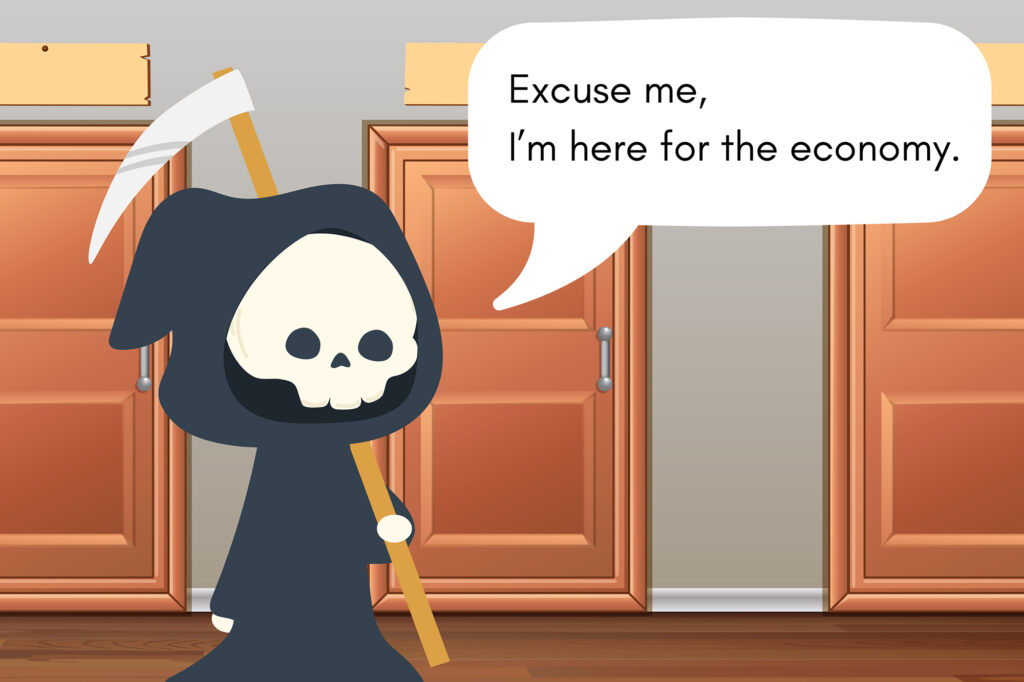Economic booms don’t die of old age (they are murdered by recessions)
And, realistically, we’ve been booming since the mid-90s.
Recessions, however, don’t automatically mean we’ll see lower interest rates like everyone is hoping for (except retirees with money stacks stashed in savings accounts).
We could see unemployment rise (that’s what the RBA and the banks are predicting) but with rising rates at the same time.
This is what happened in the 90s after our big export destination’s own economic boom ended.
Back then, Japan was buying our exports.
When they stopped buying our stuff, rates went through the roof with the RBA cash rate hitting 17.5% in January 1990.
Today our big export partner, China, has an economy that’s looking shakier by the day.
Their massive property development industry and its insatiable appetite for steel is toast.
An economic crash in China will have big impacts on commodity prices which, said another way, means the demand for the stuff we dig out of the ground and ship to China could fall off a cliff.
Just like demand and exports fell after Japan’s asset bubble burst.
Fun fact: Japan’s downturn was so bad the aftermath was referred to as Japan’s lost decade, but an argument can easily be made that it went much longer than that.
Except China buys many times more of our stuff, both in terms of dollar value and just about any other volume metric you care to choose, than Japan did.
Instead of crossing your fingers and hoping rates go down, a defensive decision for your mortgage could be the right longer-term play.
Even if a recession and a short-term dip in rates happen, the longer-term risks could have you looking back at 2024 and thinking “Gee, wasn’t that a bloody good time to fix some of my mortgage.”
Disclaimer: This is a me thinking out loud kind of opinion piece and should not be taken as or relied upon as financial advice. Remember, economists are wrong about the economy all the time (and I’m not an economist).





